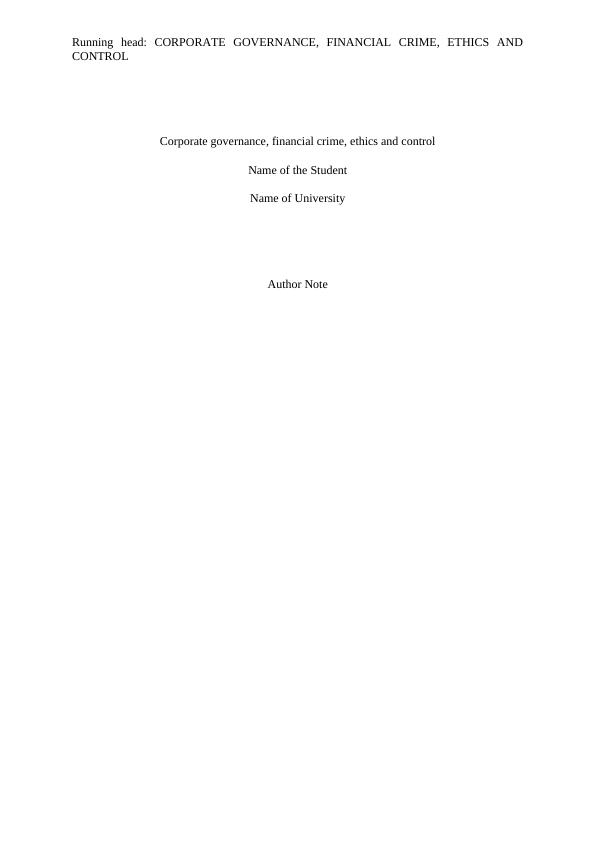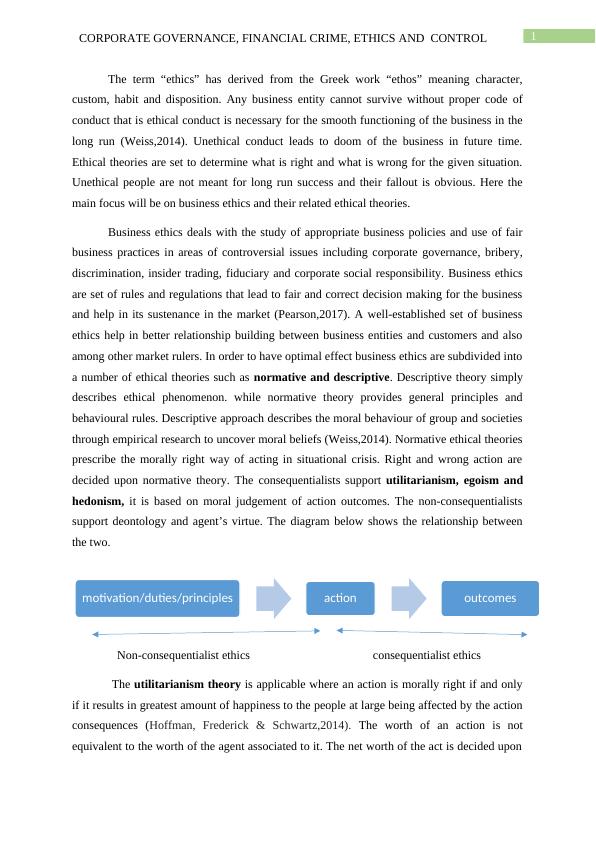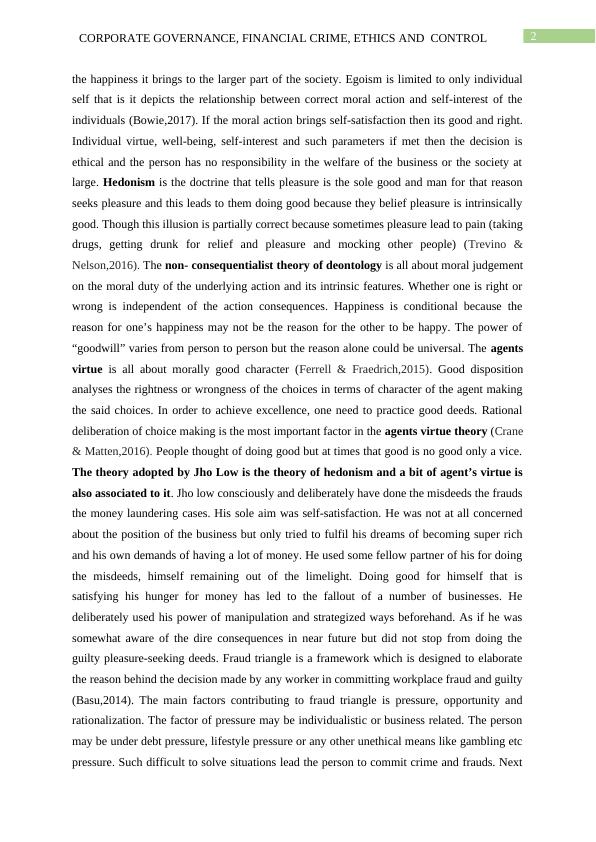Corporate Governance, Financial Crime, Ethics and Control
Summary outline of the module, including a brief description of the module content, the learning outcomes expected at the end of the module, the arrangements for the delivery of the module and details of the recommended textbook.
8 Pages2674 Words208 Views
Added on 2023-04-21
About This Document
This study explores the relationship between corporate governance, financial crime, ethics, and control. It discusses the importance of business ethics and ethical theories in decision making. It also examines the impact of white-collar crimes and money laundering on businesses. Additionally, it highlights the role of corporate governance in managing and controlling organizational activities.
Corporate Governance, Financial Crime, Ethics and Control
Summary outline of the module, including a brief description of the module content, the learning outcomes expected at the end of the module, the arrangements for the delivery of the module and details of the recommended textbook.
Added on 2023-04-21
ShareRelated Documents
End of preview
Want to access all the pages? Upload your documents or become a member.
Ethical Analysis of Australian Government's Contract with EOS
|7
|2519
|34
Ethics Definition & Meaning
|5
|892
|31
Business Ethics: Principles and Stakeholder Analysis
|11
|823
|343
PDF Business Ethics - Assignment Solved
|9
|1684
|168
Business Ethics and Issues Report 2022
|11
|2699
|23
Ethics Around The Globe
|5
|1170
|327



